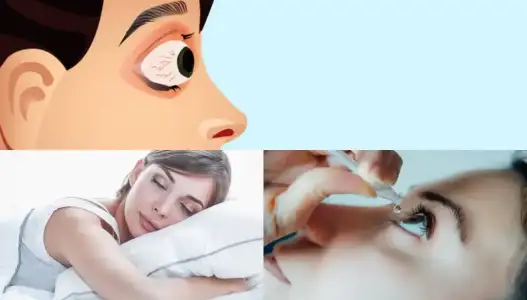How Is Thyroid Eye Disease Treated? (Graves’ Disease)

Thyroid eye disease affects the muscles and tissues of your eyes. It is caused by an overactive thyroid (hyperthyroidism) resulting from Graves’ disease. You may need to see ophthalmologists, endocrinologists, internists, surgeons, and other health professionals to treat this condition.
First, your healthcare provider will want to treat your Graves’ disease with medications, radioiodine therapy, or thyroid surgery. Managing your very active thyroid is valuable for your eye health. Sometimes treatment is not enough to help with thyroid eye disease, so you will need additional treatments, including lifetime, over-the-counter (OTC), prescription and surgical options.
Residential Solutions for Thyroid Eye Disease
Your healthcare provider may decide to start the process by carefully monitoring your symptoms to see if your symptoms worsen before prescribing treatments for thyroid eye disease. This is usually done if your symptoms are mild and do not affect your quality of life.
Symptoms may resolve on their own. During this time, you may want to discuss residential medications or lifestyle changes.
Lifestyle changes and residential remedies may include:
- quit smoking
- applying cold compresses to the eyes to reduce swelling and irritation
- wearing sunglasses to reduce sensitivity to light
- Wearing prism glasses to correct double vision
- wearing an eye patch to correct double vision
- Elevate your pillow to reduce swelling
- Taping of eyelids closed at night to prevent eye dryness
- changing your diet to reduce excess iodine
Over-the-Counter (OTC) Therapies for Thyroid Eye Disease
Many OTC treatments for thyroid eye disease focus on keeping the eyes moist and reducing inflammation.
OTC treatments may include:
- Tears
- artificial tears
- Lubricating ointments for the eyes
- Anti-inflammatory drugs
Prescriptions for Thyroid Eye Disease
If other treatments don’t work, your healthcare provider may recommend prescription medications.
Prescriptions may include:
- corticosteroids, such as prednisone, to reduce inflammation and swelling of the eye muscles
- Rituximab to reduce inflammation
- Teprotumumab trbw (Tepezza) to block protein activity that can cause disease
- Tocilizumab to smooth eye symptoms
- Mycophenolate mofetil to suppress the immune system
Surgeries and Expert-Focused Procedures
Surgery may be needed if your thyroid eye disease is severe and other treatments don’t help.
Surgical procedures can:
- reduce eye puffiness
- Fix vision problems
- Alleviating the compression of the optical end
Often, your healthcare provider will want to wait until the active part of the disease is gone, so there is less inflammation or swelling before surgery.
Procedures may include:
- Eyelid surgery to return retracted eyelids to their usual position
- Orbital decompression surgery to enlarge the orbital socket and create space for the eye to move to its usual position
- Eye muscle surgery to correct double vision
- Removal of scar tissue from your eye muscles
- Relieving pressure or jamming of optical ends
In rare cases, for eye muscles and tissues radiation therapy (orbital radiotherapy) may be necessary. This procedure destroys some of the damaged eye tissues.
Sometimes more than one surgery may be required to obtain the best results and to improve vision. Your healthcare professional will discuss all options before the first surgery takes place.
Thyroid Eye Disease Alternative Medicine
Before trying any complementary or alternative medicine for thyroid eye disease, you should discuss them with your doctor.
Some treatments can interfere with medications or cause side effects. Always discuss all of your OTC, herbal, vitamin and mineral supplements with a healthcare provider.
Studies show that some people with thyroid eye disease may have selenium and Taking supplements containing selenium and vitamin D may help, but studies on the effectiveness of this treatment are limited. Selenium supplements may be more beneficial for people living in soils deficient in this mineral. Do not forget to consult your doctor!
Finding true treatments for thyroid eye disease can take time, so patience is valuable. You may need a combination of treatments such as lifelong, over-the-counter, and prescription options to feel more fit. The goal of your treatment is to reduce symptoms while minimizing the side effects of medications. Your quality of life is precious, so you should discuss your concerns about side effects with your practitioners. They may adjust or change medications that are causing the problems. Not everyone needs surgery for thyroid eye disease, but it can relieve many symptoms. Your healthcare provider may suggest that you try other treatments before having surgery.
- On-Site Comments















Comment